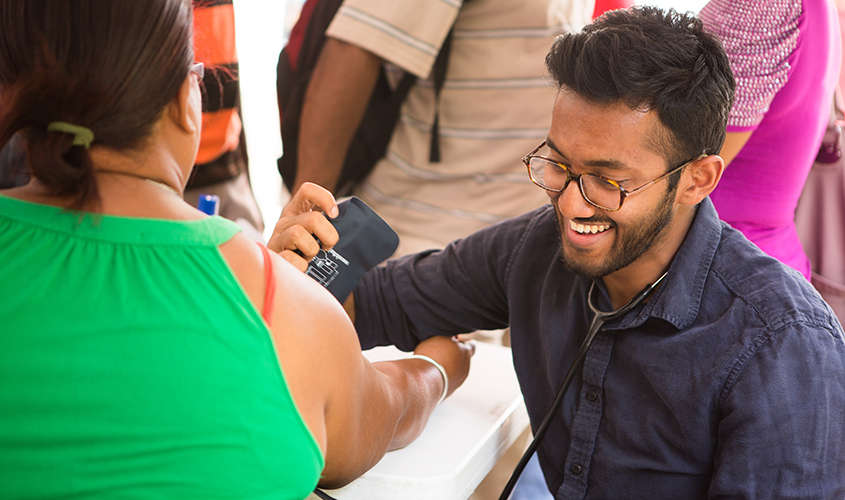World Health Organization redesignates collaborating center at SGU

As public health has become even more of a focus with the emergence of COVID-19 worldwide, St. George’s University continues to be a beacon for education, research, and service collaboration in the Caribbean. The World Health Organization (WHO), together with its regional representative, the Pan American Health Organization (PAHO), recently re-designated SGU’s Department of Public Health and Preventive Medicine (DPHPM) as a Collaborating Center (WHO CC) on Environmental and Occupational Health through August 2023.
Such centers are established to support global health initiatives implemented by the WHO, for the benefit of all member countries. The designation provides a foundation for collaborating centers to develop partnerships with national and international authorities, as well as to generate resources from funding partners.

Dr. Christine Richards
“The continued efforts by faculty and students as well as civil society, governmental and international partnerships demonstrate the benefit of collaboration in public health, which the WHO CC symbolizes,” said Dr. Christine Richards, DPHPM interim chair, who leads the Collaborating Center with SGU faculty member Odran Nigel Edwards.
The WHO CC was originally established on the SGU campus in 2012. The DPHPM, together with the Windward Island Research and Education Foundation (WINDREF), also located on SGU’s campus, are uniquely positioned to lend support, having collaborated on several environmental research programs that addressed occupational health among nutmeg workers and health care workers, renewable energy, land degradation, food and water borne diseases, and zoonotic diseases and presently the response to COVID-19.
SGU’s DPHPM, along with WINDREF, also serves as the Caribbean’s only United Nations Framework Convention on Climate Change (UNFCCC) Regional Collaborating Centre (RCC) since 2013. The UNFCCC RCC’s primary goal is to work with public and private sector organizations, as well as government agencies, to enhance the implementation of clear technology activities for the Caribbean the region in order to achieve carbon reduction targets to mitigate climate change.
– Brett Mauser

